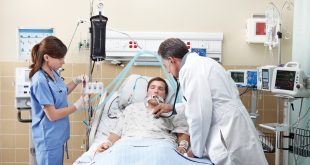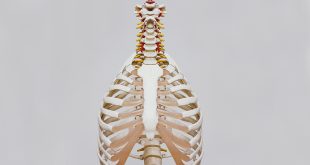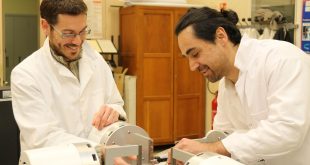Stressors in individuals can occur on a regular basis, especially in uncertain contexts such as the current health situation. To prevent a state of stress from becoming chronic and causing mental health problems, approaches involving positive technologies could help people to improve their resilience. Anuragini Shirish, a researcher at Institut Mines-Télécom Business School, describes her work on this subject. Why …
Read More »Health
Hospitals put to the test by shocks
Benoît Demil, I-site Université Lille Nord Europe (ULNE) and Geoffrey Leuridan, IMT Atlantique – Institut Mines-Télécom The Covid-19 crisis has put lasting strain on the health care system, in France and around the world. Hospital staff have had to deal with increasing numbers of patients, often in challenging conditions in terms of equipment and space: a shortage of masks and …
Read More »Speaking the language of health data to improve its use
The world of healthcare has extensive databases that are just waiting to be used. This is one of the issues Benjamin Dalmas, a data science researcher at Mines Saint-Étienne, is exploring in his work. His main objective is to understand the origin of this data to use it more effectively. As such, he is working with players from the public …
Read More »A European consortium for early detection of stroke and atrial fibrillation
The European project MAESTRIA, launched in March 2021 and set to run 5 years, will take on the major challenges of data integration and personalized medicine with the aim of preventing heart rhythm problems and stroke. How? By using artificial intelligence approaches to create multi-parametric digital tools. Led by Sorbonne University and funded by the European Union to the tune …
Read More »COVID-19: contact tracing applications and new conversational perimeter
The original version of this article (in French) was published in the quarterly newsletter of the Values and Policies of Personal Information Chair (no. 18, September 2020). On March 11, 2020, the World Health Organization officially declared that our planet was in the midst of a pandemic caused by the spread of Covid-19. First reported in China, then Iran and …
Read More »Temporary tattoos for brain exploration
A team of bioelectronics researchers at Mines Saint-Étienne has developed a new type of electroencephalogram electrode using a temporary tattoo technique. As effective as traditional electrodes, but much more comfortable, they can provide extended recordings of brain activity over several days. The famous decalcomania transfer technique – made popular in France by the Malabar chewing gum brand in the …
Read More »Protective masks: towards widespread reuse?
How can protective masks be recycled and reused without risking safety? Scientists, medical practitioners and manufacturers have teamed up to explore different treatment methods. As part of this consortium, IMT Atlantique researchers are studying the impact of decontamination processes on mask performance. Surgical and FFP2 masks are intended for single use. Thrown away after just a few hours of use, …
Read More »Reducing the duration of mechanical ventilation with a statistical theory
A team of researchers from IMT Atlantique has developed an algorithm that can automatically detect anomalies in mechanical ventilation by using a new statistical theory. The goal is to improve synchronization between the patient and ventilator, thus reducing the duration of mechanical ventilation and consequently shortening hospital stays. This issue is especially crucial for hospitals under pressure due to numerous patients …
Read More »STREAM: Bone tissue model culture
The STREAM project, which Mikhaël Hadida is working on at Mines Saint-Étienne, aims to develop a controlled, carefully-managed bone tissue culture platform. This system would facilitate observation in order to study the mechanisms involved in bone tissue by reducing the costs and time required for research. A culture system for bone tissue models in a controlled environment that …
Read More »Twin ERC grants for research on the aorta
In 2015, the Mines Saint-Étienne engineering and health center was awarded two grants by the European Research Council (ERC). This funding was for two five-year projects on ruptured aortic aneurysms in the Sainbiose laboratory[1]. Pierre Badel received a €1.5 million starting grant (young researcher grant), and Stéphane Avril received a €2 million consolidator grant (for putting together a research team). 2020 marks the end of their grants …
Read More » I'MTech L'actualité scientifique et technologique de l'IMT
I'MTech L'actualité scientifique et technologique de l'IMT









